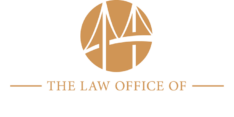Accessing Benefits Can Sometimes Get Complicated
There are a variety of social safety nets available in America. While some people may view these as government assistance, the reality is that many of us have paid into these programs for decades. Put simply, these benefits have been earned. Unfortunately, understanding how widows and disabled adult children can access benefits can get complicated.
This is because the individuals in question aren’t seeking benefits they’ve paid into. Rather, they’re seeking benefits their spouse or parent has paid into. Fortunately, they’re still entitled to financial support in many instances. However, it’s critical for you to understand your rights and options when seeking benefits as a widow or disabled adult child (DAC).
Social Security Survivor Benefits for Widows
When individuals are employed in America, they typically pay into the Social Security system through payroll deductions.. As they do this, they accumulate work credits from the Social Security Administration. These benefits are often paid out when the worker reaches a certain retirement age — or if they become disabled. However, it’s also possible for widows to access these benefits when their spouse dies.
Of course, there are specific criteria that must be met for a widow to qualify for benefits. For instance, the deceased spouse must have accumulated a certain number of work hours during their career. Fewer work hours are required for younger workers, so requirements can vary depending on your situation.
There are also criteria that the surviving spouse must meet. For instance, the spouse must typically be over the age of 60 to receive benefits. They could also qualify if they have a young child with the deceased even if they were divorced from the individual in certain circumstances. This can get complicated, so it’s often ideal to seek legal assistance.
Social Security Benefits for Disabled Adult Children
Both widows and disabled adult children can access benefits, but the requirements for doing so are different. Like widows, adult children must be covered by someone who meets the work requirements for Social Security benefits. However, it’s not necessary for the adult child’s parent to die. They can also qualify once their parent starts receiving retirement or disability benefits.
Biological children, adopted children, and, in some cases, step-children, grandchildren, and step-grandchildren may qualify. However, there are certain requirements that must first be met:
- Adult child must be unmarried
- Adult child must be over the age of 18
- The disability must have occurred before the adult child turned 22
- Must be a qualified disability and meet the definition of adult disability
The DAC does not need to have worked in their lifetime to qualify. If a disability occurs after the age of 22, it’s possible that the individual may qualify for benefits under their own record. It’s also worth noting that the disabled adult child cannot have substantial income. Sadly, all these rules can make things very complicated.
This is why you should consider speaking with a Social Security Disability attorney.
Veterans Benefits
It’s also possible for widows and disabled adult children to access benefits if their loved one served in the United States Armed Forces. There are various options available in such situations. Dependency and Indemnity Compensation (DIC), the Dependents’ Educational Assistance Program, and Survivors’ Pensions are all potential benefits.
As these benefits are provided through the Department of Veterans Affairs (VA), you’ll need to contact them for additional information. Even Survivors’ Pensions — which cover surviving spouses and unmarried children who meet age and disability requirements — have stringent requirements that are important to understand.
Unfortunately, these benefits only apply to widows and disabled children of former servicemembers. Since the majority of Americans have never served in the military, most people will have to look for benefits elsewhere.
Insurance Benefits
Even those who don’t qualify under government programs may be able to secure benefits through insurance. For instance, the surviving spouse of a deceased individual can often secure substantial benefits if their loved one had a life insurance policy in place. This is also true for disabled adult children if they are listed as beneficiaries.
There are also some long-term disability (LTD) plans that allow for the continuation of benefits to an employee’s beneficiaries if the employee was receiving benefits while alive. Other LTD plans may provide a death benefit to the employee’s beneficiaries. However, keep in mind that such provisions are not common. You’ll need to review your loved one’s plan documents.
Unfortunately, even such qualifying coverage does not guarantee that widows and disabled adult children will receive benefits. That’s because insurance companies are typically focused on one thing: profit. This can result in unfair denials, but even in these cases, you may have options available to you.
Can You File an ERISA Claim?
Back in 1974, the government passed the Employment Retirement Income Security Act (ERISA). This law specifies the minimum standards that private insurance and pension plans must meet in an employment setting. If a person had life insurance, long-term disability, retirement, or similar plans through their employer, they likely have protections under ERISA.
Fortunately, these protections often extend to family members. If a person’s spouse or disabled child was covered under any of their plans, they’re typically entitled to benefits. If these benefits are denied, filing an ERISA claim in court is possible. In such situations, it’s important to work with a disability attorney who can help you understand your rights.
At The Law Office of Nancy L. Cavey, we can assist with Social Security benefits, filing ERISA claims, and so much more. Contact us at 727-513-6704 for a free consultation. We’ll help you understand how widows and disabled adult children can access benefits.










